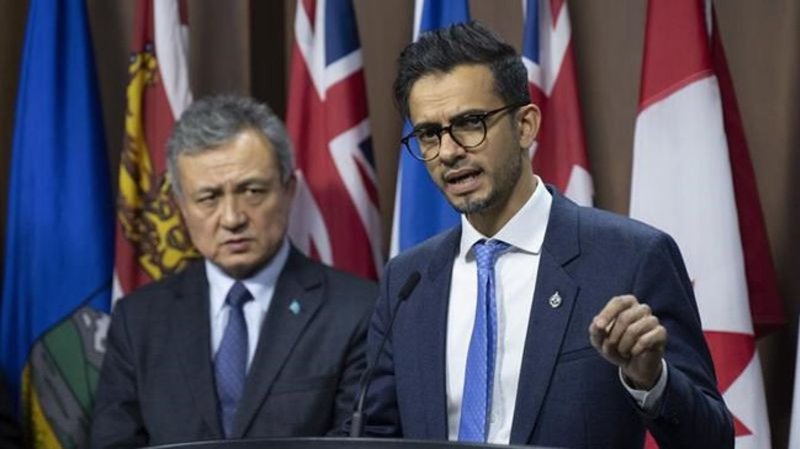
Time in Canada to debate whether notwithstanding clause should exist, says Liberal MP
OTTAWA — A Liberal MP from Montreal says it is for the country to debate whether the notwithstanding clause should be on the books.
Sameer Zuberi’s comments come after a week where the Bloc Québécois forced parties in the House of Commons to vote on whether they felt provinces had the legitimate right to use the constitutional power however they wanted, including pre-emptively.
Both the Liberals and federal New Democrats voted down the motion to defeat it, while the Conservatives supported the Bloc’s call.
The notwithstanding clause is a provision in the Charter of Rights and Freedoms that allows provincial and federal governments to pass laws that circumvent parts of the Charter for a period of up to five years.
